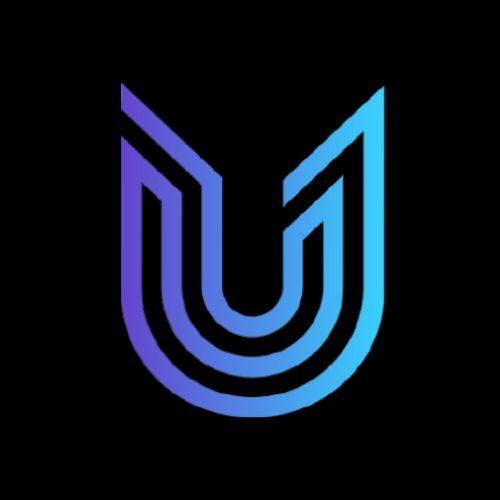Solana staking has become a popular way for many people to earn rewards while supporting the network. But before you decide to stake your SOL tokens, it is important to understand how secure this process is. Like any financial activity, staking comes with some risks, but there are also safety measures you can follow to protect your assets. This blog will explain how secure Solana staking is and what you can do to minimize potential risks.
What is Solana Staking?
Before diving into security, let’s quickly go over what Solana staking means. Staking is the process of locking up your SOL tokens to help maintain the Solana blockchain. When you stake SOL tokens, you are essentially participating in network validation, and in return, you earn rewards. It is a way to earn passive income by supporting the blockchain’s operation.
How Secure is Solana Staking?
Solana is a proof-of-stake (PoS) blockchain, which means security relies on stakers and validators who follow strict protocols. The network itself is designed to be fast, efficient, and secure. However, the security of your staking depends on a few factors.
1. Network Security
Solana’s blockchain uses advanced cryptography and a consensus mechanism that has been tested for robustness. The design of the network helps protect against attacks such as double-spending and unauthorized transactions. Validators, who confirm transactions, must follow these protocols strictly to keep the network secure.
2. Validator Security
When you stake SOL tokens, you usually delegate them to a validator. Validators are responsible for processing transactions and securing the network. Choosing a trustworthy and reliable validator is essential because poor validator practices can lead to loss of rewards or slashing (where part of the stake is lost as a penalty).
3. Smart Contract Risks
Staking on Solana often involves smart contracts, which are programs that run on the blockchain. These contracts automate staking and rewards distribution. Although Solana’s smart contracts are designed with security in mind, vulnerabilities can sometimes exist, especially with third-party staking platforms.
4. Wallet Security
Your SOL tokens are stored in a digital wallet, such as Phantom or Solflare. If someone gains access to your wallet’s private keys or recovery phrase, they can steal your tokens. This makes wallet security a critical part of staking safety.
Understanding the Risks
While Solana staking is generally secure, it is important to be aware of certain risks that might affect your assets.
1. Validator Downtime or Misbehavior
If the validator you delegate to goes offline or behaves maliciously, you may lose rewards or face penalties. Validators need to be reliable and follow the network’s rules to avoid slashing your stake.
2. Network Vulnerabilities
Though rare, blockchain networks can face bugs or attacks. Any vulnerability in the Solana network could affect the security of staked tokens. However, Solana developers regularly update and improve the network to minimize such risks.
3. Phishing and Scams
Because staking involves wallets and sometimes third-party services, scammers often target users with phishing attacks. Fake websites or fake apps may try to steal your private keys or trick you into sending your SOL tokens to the wrong place.
4. Illiquidity During Lock-Up Periods
Some staking setups require you to lock your tokens for a specific period. During this time, you cannot move or sell your SOL tokens. If the market moves suddenly, you might face losses or miss out on other opportunities.
Safety Measures to Protect Your Staked SOL
Knowing the risks is the first step. Next, here are some simple but effective safety measures you can take when you stake SOL tokens.
1. Choose Validators Carefully
Look for validators with a good reputation, reliable uptime, and transparent operations. Check community reviews and validator statistics before delegating your stake. This reduces the risk of losing rewards due to validator issues.
2. Use Trusted Wallets
Use well-known and secure wallets like Phantom or Solflare for storing and staking SOL tokens. Make sure you never share your private keys or recovery phrase with anyone. Also, avoid accessing your wallet from public or unsecured networks.
3. Verify Website URLs
Always double-check the URL when accessing staking platforms or wallet websites. Bookmark trusted pages and be cautious of links in emails or social media that may lead to phishing sites.
4. Stay Updated
Follow official Solana announcements and community channels to stay informed about network updates or potential security issues. Updates often include important information about safety improvements or warnings.
5. Avoid Sharing Sensitive Information
Never share your wallet credentials or private keys. No legitimate staking platform or validator will ever ask for your private key. If someone does, it is a scam.
Getting Started with Solana Staking
If you are new to this, a good SOL staking guide can help you understand the process in simple steps. Many guides will walk you through setting up a wallet, choosing a validator, and staking your tokens safely. Starting small and learning as you go is a good approach to reduce risk.
Conclusion
Solana staking is generally secure thanks to the network’s strong design and the staking ecosystem’s growth. However, like any financial activity, it carries some risks. By understanding these risks and following basic safety measures such as choosing reliable validators and securing your wallet, you can protect your investment and enjoy earning rewards.
For those looking for expert support in staking, Ubik Capital offers reliable validator services and a proven track record in the blockchain space. With a focus on security and transparency, they help users maximize their staking rewards while minimizing risks.
Explore how partnering with experienced validators can make your staking experience smoother and more secure. Check out what Ubik Capital has to offer and take the next step in your Solana staking journey.

